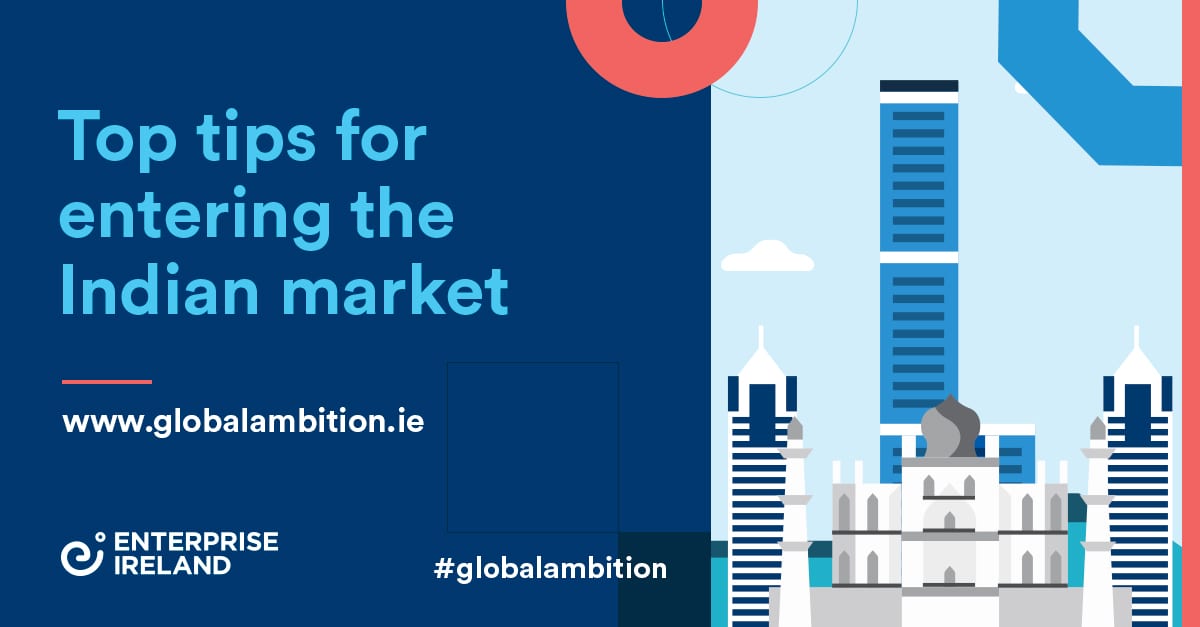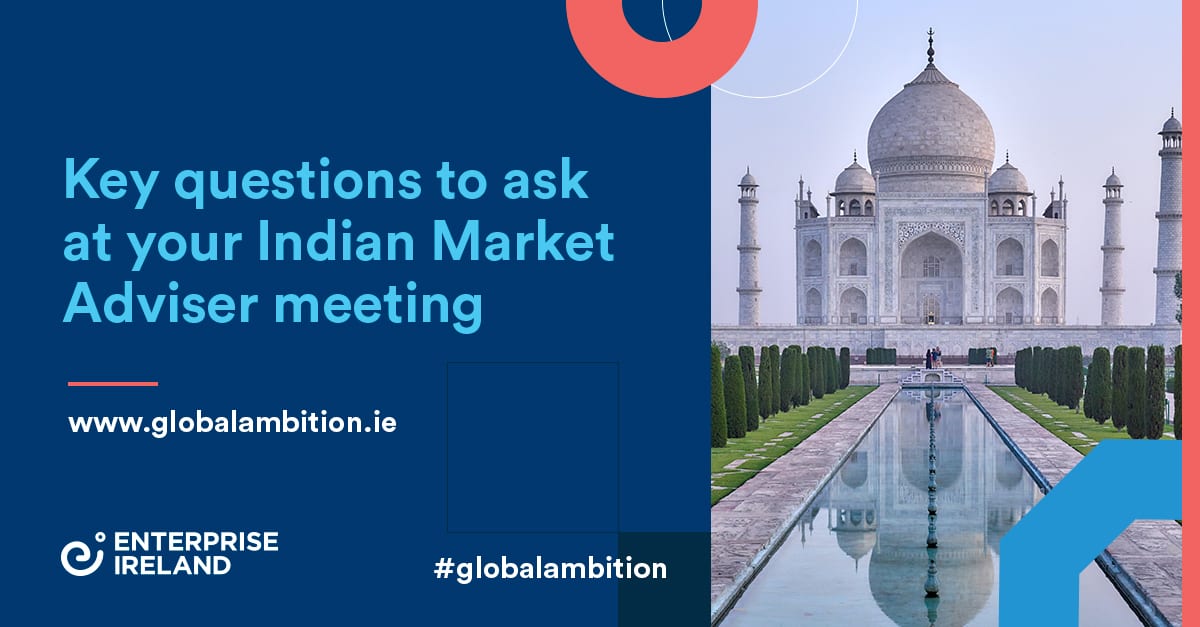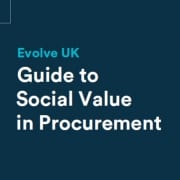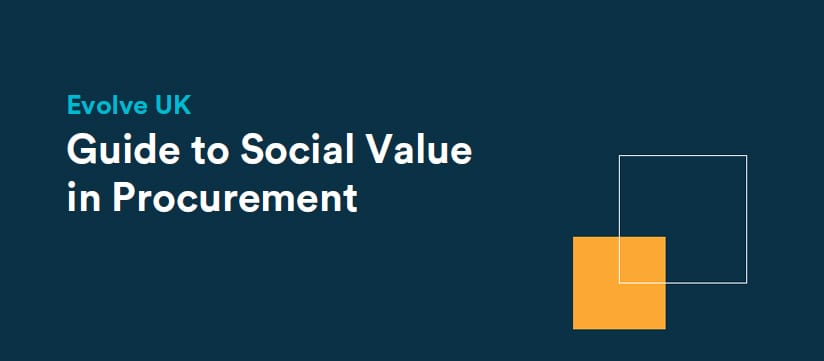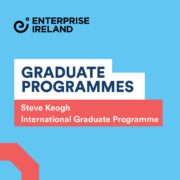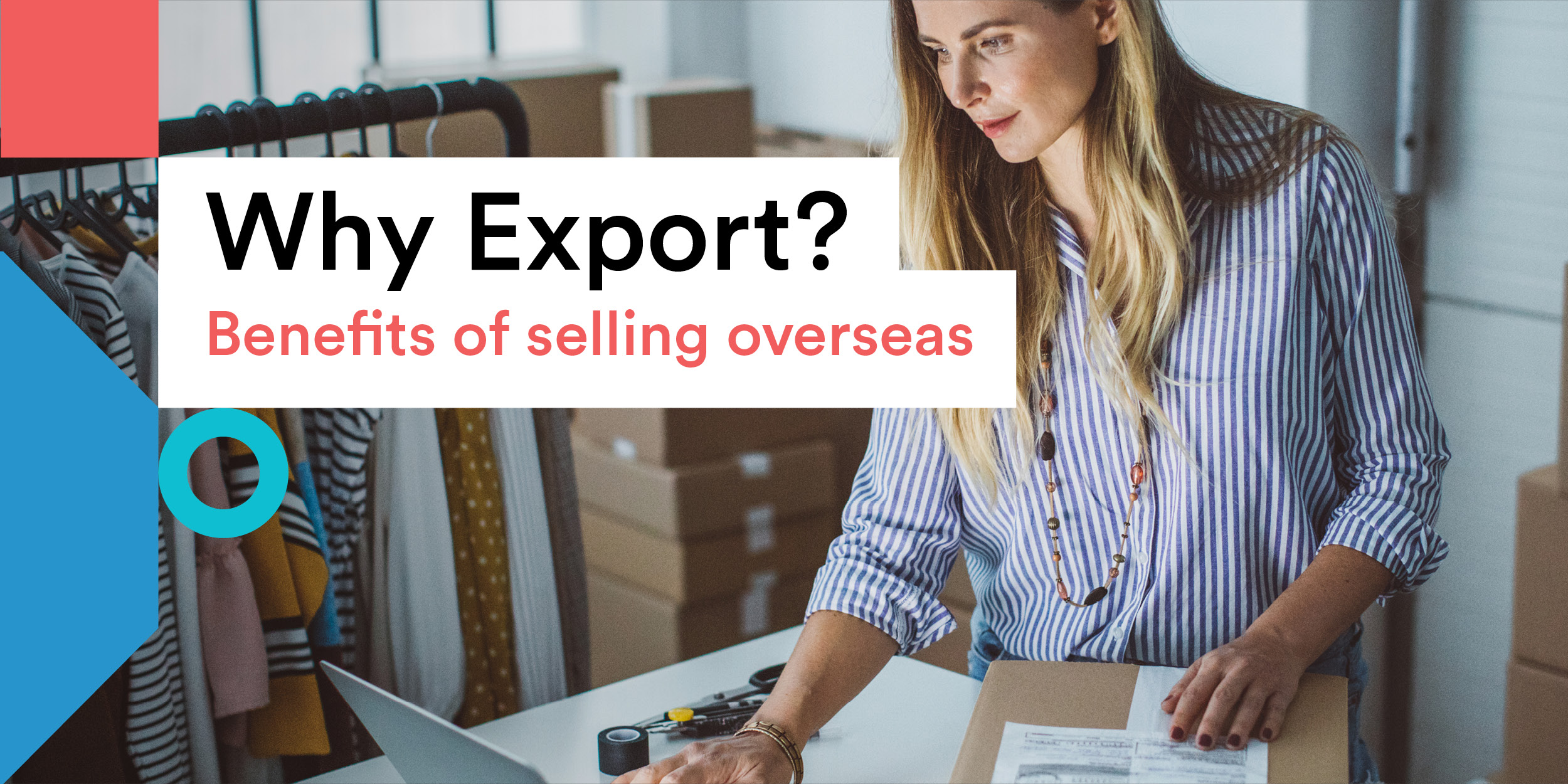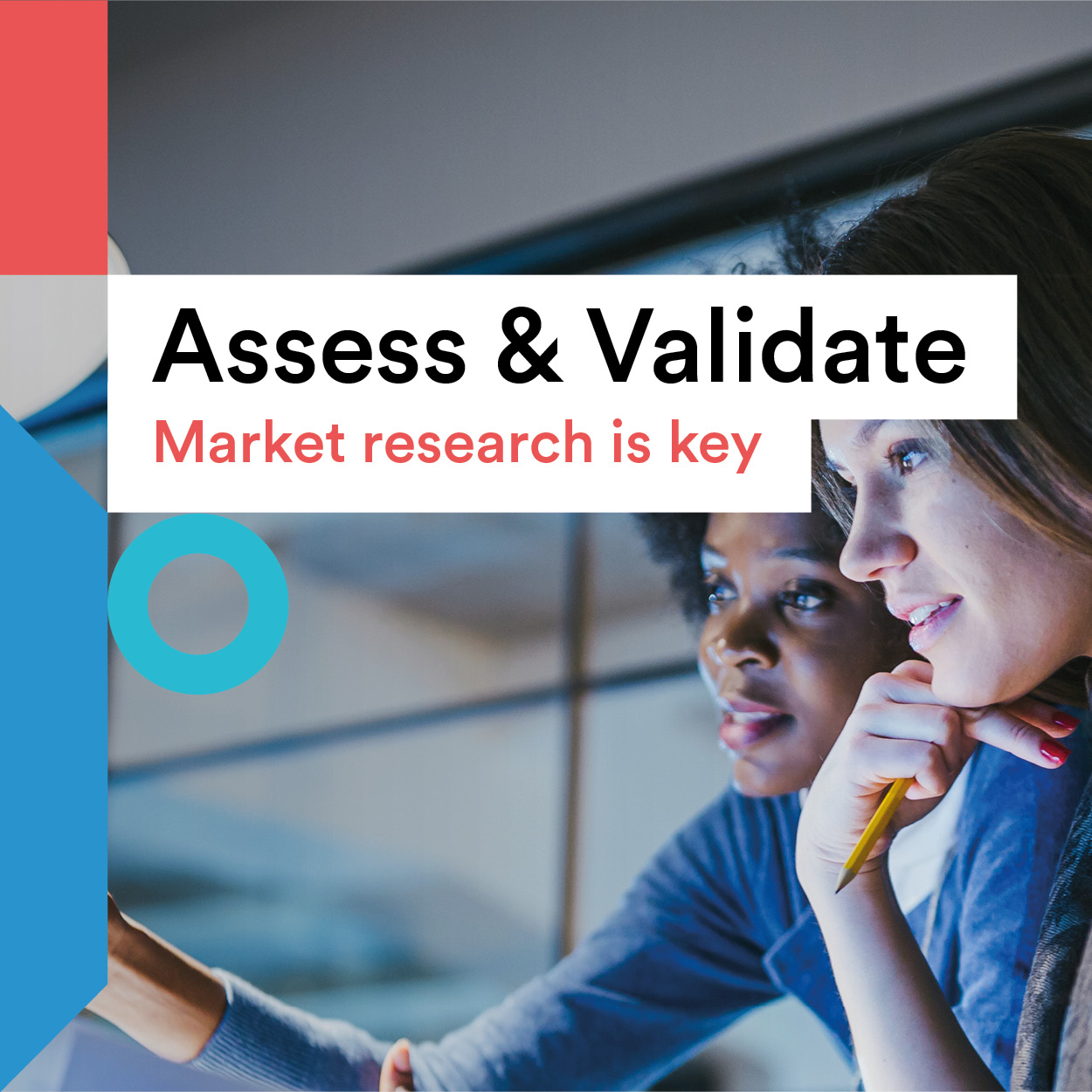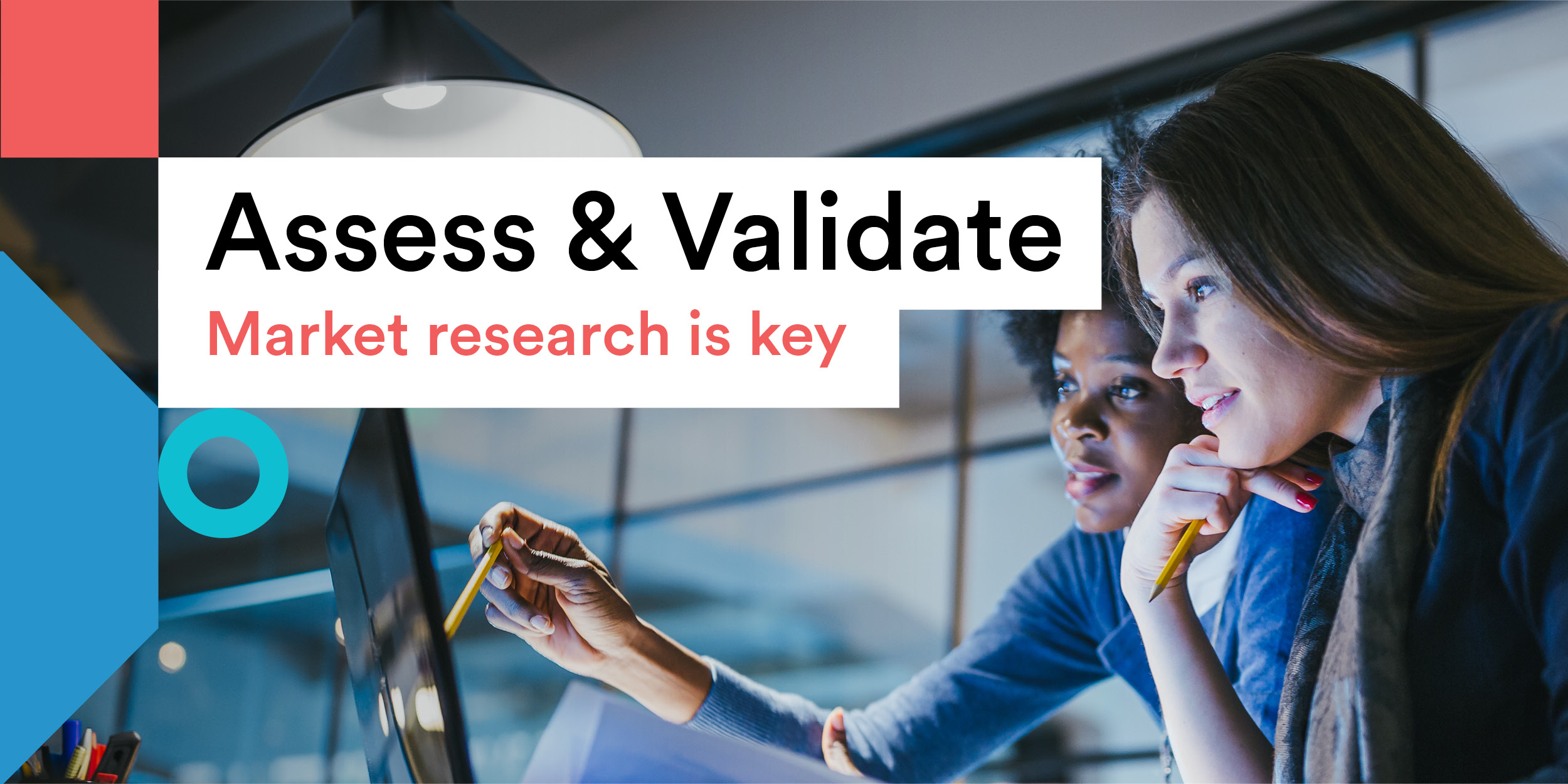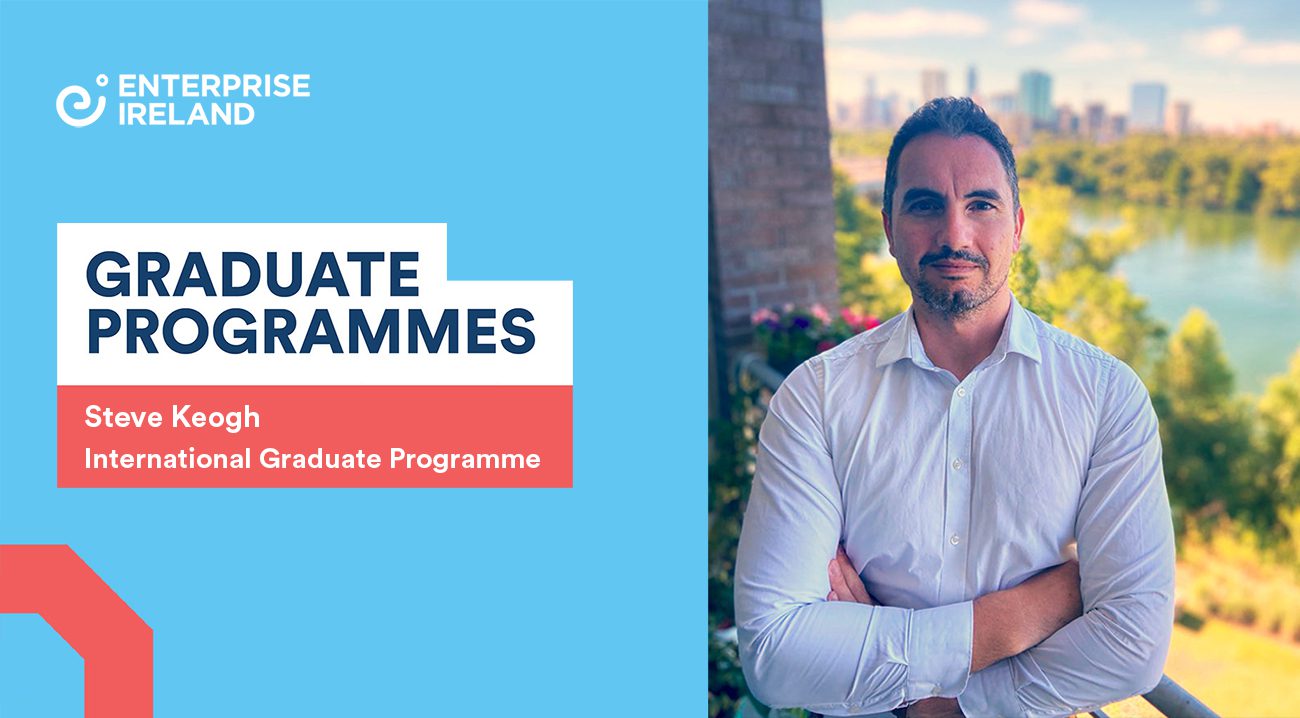
Steve Keogh participated in Enterprise Ireland’s international graduate programme working as a Trade Development Executive in the Austin, Texas, office. On completion of the programme he made the move back to Europe and is now based in Brussels working as a Market Advisor
The Graduate Programme at Enterprise Ireland gave me the opportunity to see the world while flying the flag for Irish businesses in international markets. My story is slightly different in that I’m 37 years old and ran a family business in Dublin for many years before deciding that I wanted to do something bigger. While studying Business Management in Tallaght I became interested in Enterprise Ireland and went on to complete an International Management Masters in Trinity before joining the Graduate Programme.
Applying for the Graduate Programme
The application process for the Graduate Programme is fairly intense. First you need to write an essay about why you’re good for the role. Then there are online tests to do before a video interview. The group scenarios can seem quite intimidating. In one instance there are five applicants with five individual assessors taking notes and watching your performance as you work through a case study completing tasks and discussing the assignment in front of the group. While it can be intimidating it is worth it for the benefits and experience that the Enterprise Ireland graduate programme provides.
If I were to give one piece of advice to applicants who face the same test it would be that this is not the time to discuss your thesis; this is a test to see how you would act on the ground in the market. Many candidates think that the assessors want to see their knowledge of a topic, when it’s actually a practical test to see what impactful decisions you would make that would help our clients. This test is reflective of the job itself – on any given day, you’ll receive a call from a client looking for contacts or networking opportunities – your job is to connect them with the right person/people, sector knowledge is important but so is practicality. Time is money over here.
If you’re interested in the position, you need to be bold and confident. There’s no room to be timid around ideas, instead be brave enough to voice the ideas that you think would make the most impact.
“Go in with a positive mental attitude and let your willingness to work hard and do the job show.” advises Steve Keogh.
Networking is key
The job itself is intensive. You are representative of Ireland on the ground in a foreign business community. I can’t put a figure on the number of tasks you might be asked to do. It’s literally anything and everything that would help Irish companies win exports in a foreign market. It’s about knowledge and networking – the knowledge of the leading sectors in your market, and the contacts you make through attending shows, events and so on.
Making an impact for Irish business
Nothing makes more of an impact than if a company rings up looking for advice on how to get into a sector and you’re able to introduce them to the major players and progress an introduction– you’ve just saved them a lot of time and a lot of headaches. And on the flip side you will have lots of people coming to market with a product that mightn’t be suitable – your knowledge of the market could save them time and money if you can direct them to the best market fit for their product.
One of my favourite success story’s features a company from Tipperary called Saint Killians that produces candle units for churches. Their products make it so that when the candle burns down, the wick drops into a water bath underneath for safe extinguishing. About a week after I stepped into this role, they contacted me and asked for help to sell into Texas for the first time. This was my first task and I felt I had something to prove so I got on the phone to every priest from Houston to Dallas and back, and now, if you go to 10th Street in Austin, there’s a church there with a candle unit from a company in Tipperary – and I got it there! That’s the sort of impact you can have for an Irish company and the feeling of being able to point to it and say: “I did that” is extraordinary.
“Enterprise Ireland gives you the opportunity to do genuinely meaningful work for Irish companies in international markets.” says Steve Keogh.
One Year Later
One year later and I am sitting in the Enterprise Ireland Benelux office on the 14th floor of Sablon tower in city centre Brussels. It’s been an interesting transition to say the least and I feel invigorated by the challenge of a new region, new team dynamics and business culture.
I have started a new position as a Market Advisor for digital solutions and will be working with colleagues in the wider Eurozone team to deliver impact for clients in cyber security, ICT and more. That’s what’s great about Enterprise Ireland, the opportunities for progression and exciting challenges are there. It takes a combination of patience, opportunity and results but if successful you can join one of the overseas offices in a new region and gain an entirely new cultural experience, or advance in your career in HQ at Eastpoint and remain at the forefront of innovation.
The preceding year was challenging for businesses globally as we all transitioned into the world of virtual work, restricted travel, and general uncertainty. Working from Austin I was able to witness first-hand the adaptability of the Enterprise Ireland team and we all pivoted into new ways of delivering impact for clients. Through webinars, virtual pitch events, business accelerators and network we could still deliver key supports to help win new business and expand existing relationships for our clients.
For those wishing to progress beyond the grad programme in Enterprise Ireland, your demonstration of capability will increase your responsibility. My portfolio was expanded to include the energy and aerospace sectors for the US and I thoroughly enjoyed finding new opportunities for clients in these markets. The development of meaningful relationships with your clients will be key in your success. The clients I worked with had incredible offerings and exceptional business development skills so once I could find the right opportunity for them, I was confident that they would work their magic and get results. Building trust with your manager and team will open doors to new opportunities and keeping a keen eye on new or unexplored sectors in your region will provide a platform to demonstrate your innovative thinking. In this regard I particularly enjoyed looking at the commercial space and renewable energy sectors in the US.
I think ultimately that there is an element of job fit that comes into play. It won’t take you long to figure out if this is the sort of role you enjoy and if it is the right one doors tend to open.
If you are successful in joining the programme, you have gained the opportunity of a lifetime. Whether you stay on with Enterprise Ireland or take up a new role in a different organisation, the skillset, network and confidence you will have gained set you up for success in any new endeavour.
To learn how Enterprise Ireland’s Graduate Programme can help you take the next step in your career visit National Programme / International Programme.

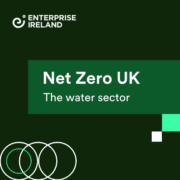




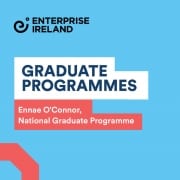
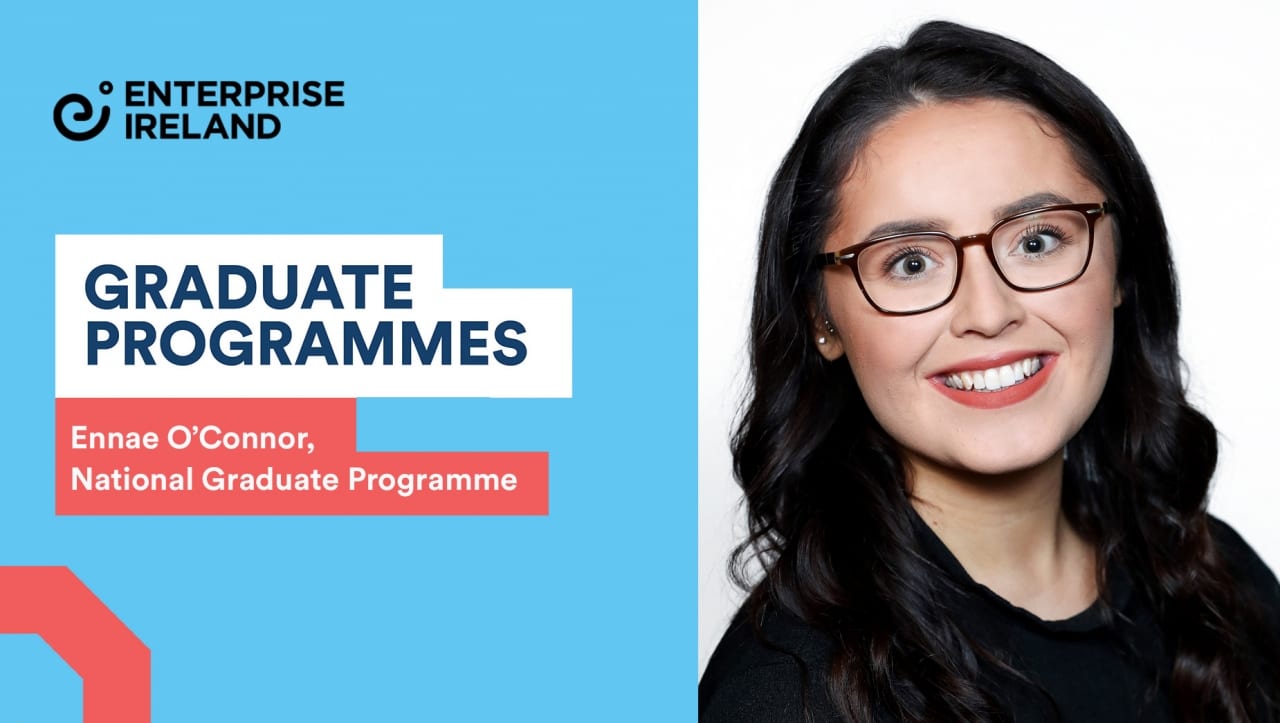 Ennae O’Connor is in first year with the National Graduate Programme, working in the Organisational Development department.
Ennae O’Connor is in first year with the National Graduate Programme, working in the Organisational Development department.
